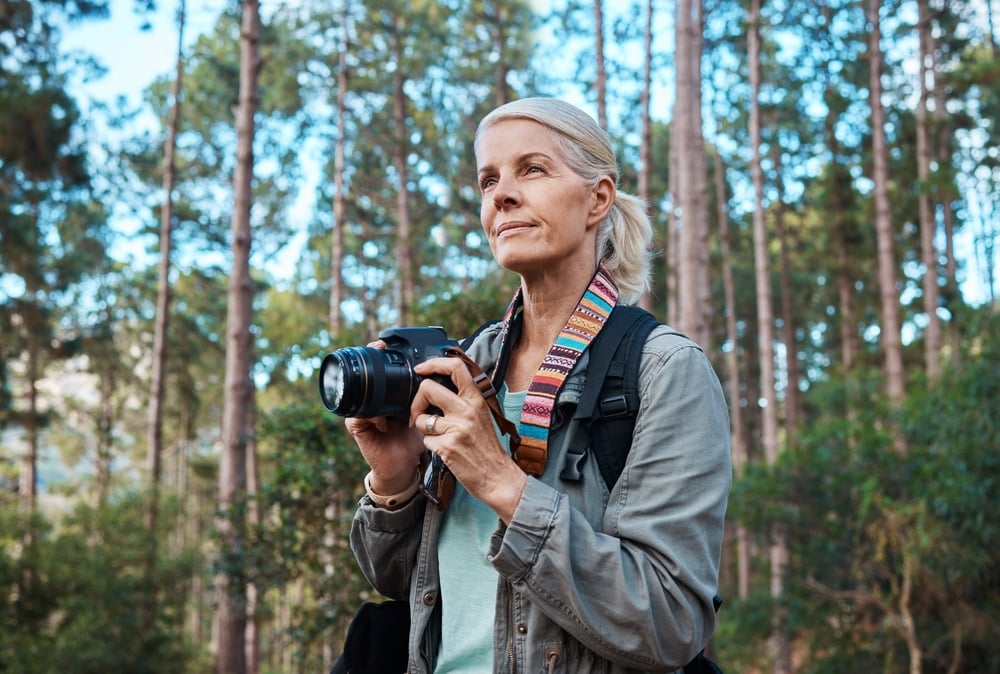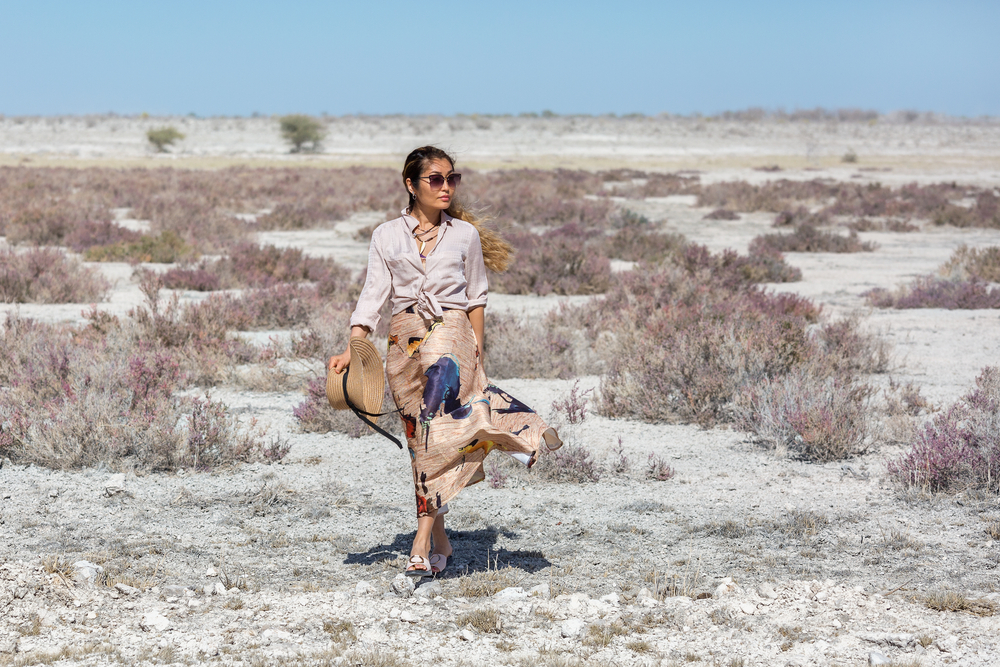Young women are rewriting the rules of travel, one bold step at a time.

You may not notice it at first glance, but there’s a quiet revolution happening in airports, hostels, and tucked-away street markets across the globe. Young women aren’t just joining the world of travel—they’re reshaping it. They’re solo backpacking across continents, launching travel startups, and choosing experiences over traditional paths in ways that are both empowering and wildly disruptive.
What’s fascinating isn’t just that they’re doing it, but how. These women aren’t waiting for permission or following someone else’s guidebook. They’re trusting their instincts, building global friendships, and finding freedom in places that used to feel off-limits. It’s not about rebellion—it’s about redefinition. These shifts in attitude and approach are quietly but decisively changing what it means to be a traveler. The result is a new kind of travel culture that’s more inclusive, fearless, and unapologetically led by women charting their own course.
1. They’re ditching safety myths and going solo with confidence.

The old warnings—“It’s too dangerous,” “Wait for someone to go with you”—are fading fast. Young women are proving they don’t need a companion to see the world. Solo travel used to carry an edge of taboo, especially for women, but now it’s practically a rite of passage, according to Jenn Underwood at Medium.com. They’re researching destinations thoroughly, investing in safety tools, and choosing routes that align with their values and comfort levels. Confidence, not recklessness, fuels their independence.
This shift isn’t just about checking off bucket-list destinations. It’s about reclaiming autonomy. These travelers aren’t waiting for the right time or the perfect partner. They’re discovering how liberating it feels to navigate a new city on their own, to sit alone in a café without apology, and to make decisions without deferring to someone else. That self-trust spills into other areas of life, which is what makes solo travel so transformative. It’s no longer risky—it’s revolutionary.
2. They’re prioritizing purpose over passport stamps.

For many young women, it’s not about how many countries they can visit—it’s about why they’re going. Purposeful travel is replacing the pressure to rack up destinations. Whether it’s volunteering in a remote village, attending a wellness retreat, or simply immersing in a culture for weeks instead of days, the focus has shifted toward meaning rather than metrics.
They’re drawn to deeper connections and richer experiences. A slower pace gives them time to learn the language, understand local customs, and form relationships that go beyond surface-level tourism. This isn’t about chasing photo ops—it’s about personal growth, healing, and sometimes activism, as stated by Rosita Boland at The Guardian. Travel has become a tool for reflection and contribution, not just a backdrop for Instagram. That quiet shift from quantity to quality is redefining what meaningful travel looks like.
3. They’re finding freedom in digital nomadism.

Young women are rewriting the narrative around work and travel. Instead of putting off adventure until retirement or a sabbatical, they’re building portable careers that let them work from a beach in Bali or a café in Lisbon, as shared by authors at The Traveling Sloth. Freelancing, remote gigs, and online businesses have cracked open opportunities that didn’t exist a decade ago.
It’s not just about freedom from the office—it’s about freedom of choice. These women are designing lives that prioritize balance and flexibility. They know how to hustle online and still take a midweek hike through a rainforest. The digital nomad lifestyle isn’t just for tech bros anymore. Young women are building vibrant, supportive communities around the world, showing that location independence is just as much about connection and creativity as it is about logistics.

4. They’re curating safe spaces for women on the move.

One of the most powerful shifts is how young women are building infrastructure for other women. Hostels run by women for women, female-led travel groups, and safety-focused apps are flourishing. Instead of waiting for mainstream travel companies to catch up, they’re filling the gap themselves with offerings that speak directly to their needs.
These spaces aren’t just physically safe—they’re emotionally supportive. They offer camaraderie without competition and advice without condescension. Whether it’s a Facebook group that shares real-time safety tips or a yoga retreat for women of color, these efforts create solidarity in a world where solo travel can still be intimidating. This kind of grassroots innovation is what’s making the travel landscape not only safer but more empowering for everyone who follows.
5. They’re embracing offbeat paths and rejecting the obvious.

Forget the tourist traps. Young women are choosing experiences that don’t make the typical top ten lists. They’re heading to lesser-known villages, remote regions, and countries that barely show up in mainstream travel magazines. It’s not about being contrarian—it’s about curiosity and authenticity.
They want to feel the heartbeat of a place, not just its highlights. Whether it’s learning traditional crafts from local women, cooking meals in homestays, or navigating rural bus systems with only a phrasebook, this kind of travel builds resilience and deepens cultural appreciation. It’s not just where they go—it’s how they choose to go. They’re proving that being adventurous doesn’t require drama or danger—just openness and intention.
6. They’re making self-care a travel essential.

Gone are the days when travel meant pushing through exhaustion to hit every landmark. Young women are taking a slower, softer approach. They’re scheduling in rest days, booking accommodations that feel nurturing, and choosing destinations based on emotional resonance, not just visual appeal.
Self-care on the road might mean declining an invitation to go out, skipping the sunrise hike, or staying in a beautiful room with good light and better books. They’re recognizing that rest is revolutionary, especially in a world that often demands their constant performance. Travel, for them, isn’t an escape—it’s an extension of their healing, their boundaries, and their inner growth. That kind of self-tending is a radical act in itself.
7. They’re using travel to connect across generations.

Travel isn’t just for twenty-somethings anymore. Young women are planning trips with their mothers, grandmothers, and even intergenerational groups of strangers. They’re using travel as a bridge between past and future, turning getaways into shared history.
These experiences often lead to deeper conversations, mutual understanding, and healing of long-held tensions. Traveling with older generations shifts the pace, the priorities, and the emotional tone of a trip. It becomes about legacy, laughter, and sometimes reconciling the very stories that shaped them. Instead of seeking independence from family, they’re learning to weave those relationships into the fabric of their adventures, showing how travel can strengthen bonds across time.
8. They’re building global sisterhoods through storytelling.

Storytelling is how young women are making their mark in the travel world. Through blogs, videos, newsletters, and candid social posts, they’re sharing not just where they went, but who they became. These stories are vulnerable, honest, and often challenge traditional narratives about what it means to be female and free.
Their words are sparking courage in others who might feel hesitant or unworthy. These aren’t just glossy travel influencers—these are everyday women showing the messy, beautiful reality of navigating unfamiliar terrain with grace and grit. In doing so, they’re creating a digital sisterhood that reaches across borders and backgrounds. Every shared story invites another woman to imagine herself out there too.
9. They’re redefining luxury on their own terms.

Luxury no longer means five-star hotels and Michelin stars. For many young women, it means time, space, safety, and intentional beauty. It’s a clean room with a lock, a beach with no crowds, or a meal that’s slow-cooked and shared. They’re prioritizing experiences that feel rich in emotion, not just in price.
This redefinition is subtle but powerful. It resists the pressure to overspend or perform affluence and instead centers on comfort, authenticity, and joy. Luxury can be a private hike through misty hills or a sunrise swim in silence. By choosing what feels good over what looks impressive, they’re reclaiming travel as something deeply personal and nourishing.
10. They’re shifting the narrative in the media spotlight.

Young women are demanding—and creating—better travel media. Tired of being reduced to bikini shots and travel “muses,” they’re producing documentaries, writing guidebooks, and hosting podcasts that center female perspectives. Representation is no longer optional. They want to see real bodies, diverse backgrounds, and complex journeys reflected in what they consume.
This media shift isn’t about ego—it’s about accuracy and inclusion. It tells the world that women travel for a thousand reasons beyond romance or escape. It challenges outdated tropes and makes space for stories that reflect a wider range of human experience. And it opens the door for other women to see themselves not just as travelers, but as creators and cultural contributors too.
11. They’re letting intuition guide their travel decisions.

One of the most overlooked but game-changing shifts is how young women are letting intuition lead. Instead of following rigid itineraries or crowd-based ratings, they’re learning to tune into their gut. If a place doesn’t feel right, they leave. If a detour calls to them, they take it.
This trust in instinct is deeply empowering. It strengthens their self-awareness and reinforces that their feelings are valid, even in unfamiliar environments. It leads to moments of unexpected magic—a quiet trail instead of a noisy plaza, a new friend instead of a scheduled museum. Traveling by intuition helps them stay grounded in a world that constantly tries to pull them in every direction. It’s quiet, personal, and radical in its own right.
